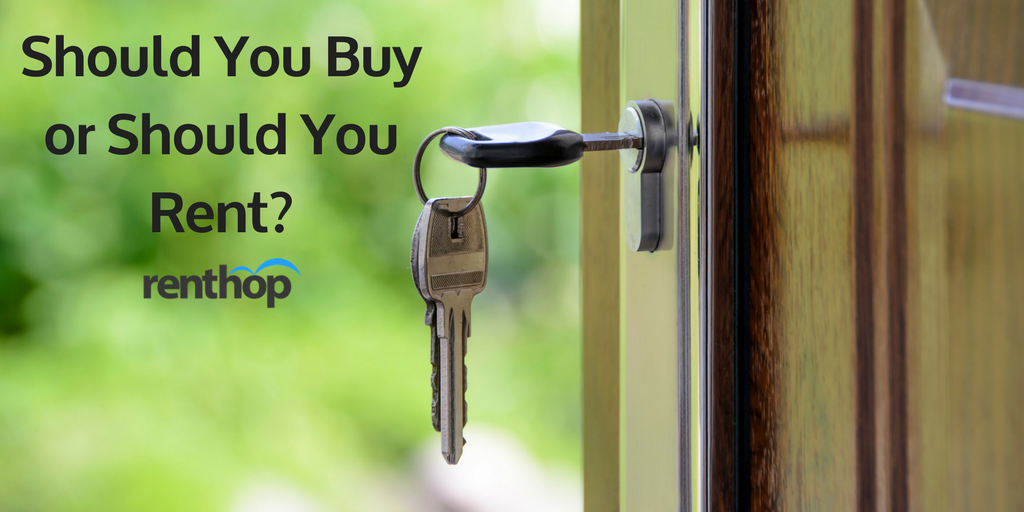Many Americans dream of homeownership, whether it’s in the near future or further down the horizon. Homeownership is a significant stepping stone that provides stability and, for many, a sense of fulfillment. However, this is an expensive transition, and the rising cost of home affordability puts further strain on prospective homebuyers. This leaves you wondering: should you buy or should you rent an apartment?

Four Questions to Ask: Should You Buy or Should You Rent?
That being said, sometimes it feels like you are throwing the money away when you pay the monthly rent, and owning a home seems like a great investment to have no matter what. So, how would you know when it is time for you to buy? As the jump from renting to owning is a huge financial step and a lifestyle change, ask yourself the following questions before you make your next move:
1. Can I Commit to Living Here for At Least Five Years?
If you can’t, owning a house is probably not a good idea. Renting, instead, adds some spice to your life, and though you often need to sign a lease, you always have the option to move to a pricier (or cheaper) place when the lease ends depending on your financial status.
2. How is my Credit Score?
Your credit score is no joke. When you rent, landlords can reject your application if you have a low credit score. But things are even more serious when you buy. Your credit history determines how good of a mortgage rate you can get. However, just because you don’t have a good credit score now, it does not mean that you should give up the idea of owning a home. Take baby steps now to start improving your credit score, such as clearing the old debts, reviewing your reports and disputing all mistakes and errors.
3. Do I have Enough Income and Savings to Cover Expenses?
According to NAHB, a first-time home buyer for a single-family spends over $11,000 on appliances, furnishings, property repairs and alterations. In addition, the buyer also needs to pay property tax and other taxes, homeowner insurance, and other expenses (such as moving). If you do not have enough budget for these, better wait for a bit and let your landlord picks up the taxes, insurance, maintenance, and even utilities until you are ready to take on more responsibilities.
4. How is the Market?
It is vital that you research and find out everything you need to know about the housing market. For instance, as of now, the housing inventory across the country is relatively low compared to previous years, whereas rental inventory in some cities is enough to meet the demand. In a market like this, it is more difficult to strike a deal or to get the house you truly like (as the market is more competitive), and you might be better off staying put for a bit longer even you are financially ready to purchase a house.
Editor’s Note: We updated this article to enhance readability.




